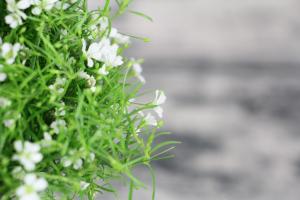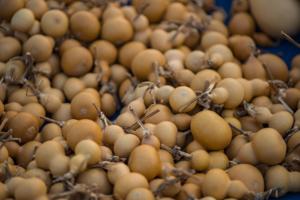What to Feed My Pot Plant
As a plant owner, one of the most important things you need to know is what to feed your pot plant. It's not just about watering it, but also ensuring that it gets the nutrients it needs to grow and stay healthy. In this article, we'll cover everything you need to know about feeding your pot plant.
The Basics of Plant Nutrition
Before we start discussing what to feed your pot plant, let's first talk about the basics of plant nutrition. Like all living creatures, plants require certain essential nutrients to survive and grow. These include:
Nitrogen
Phosphorus
Potassium
Calcium
Sulfur
Magnesium
Iron
These nutrients are typically found in the soil, but they can also be supplemented through fertilization. However, not all fertilizers are created equal, and some may not contain all the essential nutrients your plant needs.
Choosing the Right Fertilizer
When it comes to choosing the right fertilizer for your pot plant, there are two main types to consider: organic and synthetic. Organic fertilizers are made with natural materials, such as composted manure or bone meal, and are typically slower-release than synthetic fertilizers. Synthetic fertilizers, on the other hand, are made with chemical compounds and can be more quickly absorbed by the plants.
Both organic and synthetic fertilizers can be effective, but it's important to choose one that's appropriate for your plant's specific needs. For example, if you're growing a flowering plant, you may want to choose a fertilizer with a higher phosphorus content, as this nutrient is important for flower development.
When to Fertilize
Knowing when to fertilize your pot plant is just as important as choosing the right fertilizer. Most plants benefit from regular fertilization throughout the growing season, which typically lasts from spring to fall. However, it's important not to over-fertilize, as this can actually harm your plant.
When fertilizing your pot plant, always follow the instructions on the fertilizer package. This will tell you how much to use and how often to apply it. In general, you should fertilize your plant every two weeks during the growing season, and stop fertilizing altogether during the dormant winter months.
Additional Tips for Feeding Your Pot Plant
Here are a few additional tips to keep in mind when feeding your pot plant:
Avoid fertilizing newly-planted or newly-transplanted plants for at least two weeks, as they need time to establish roots before being fertilized.
If your plant is showing signs of nutrient deficiency, such as yellowing leaves or stunted growth, it may be in need of more nutrients.
Always water your plant before fertilizing, as this will help to prevent burning of the roots.
Consider using a slow-release fertilizer that will provide a steady supply of nutrients over time.
Conclusion
Feeding your pot plant the right nutrients is crucial for its health and growth. By choosing the right fertilizer, fertilizing at the right time, and following a few simple tips, you can help ensure that your plant thrives and produces beautiful blooms and foliage.

 how many times do yo...
how many times do yo... how many planted tre...
how many planted tre... how many pine trees ...
how many pine trees ... how many pecan trees...
how many pecan trees... how many plants comp...
how many plants comp... how many plants can ...
how many plants can ... how many plants and ...
how many plants and ... how many pepper plan...
how many pepper plan...
































